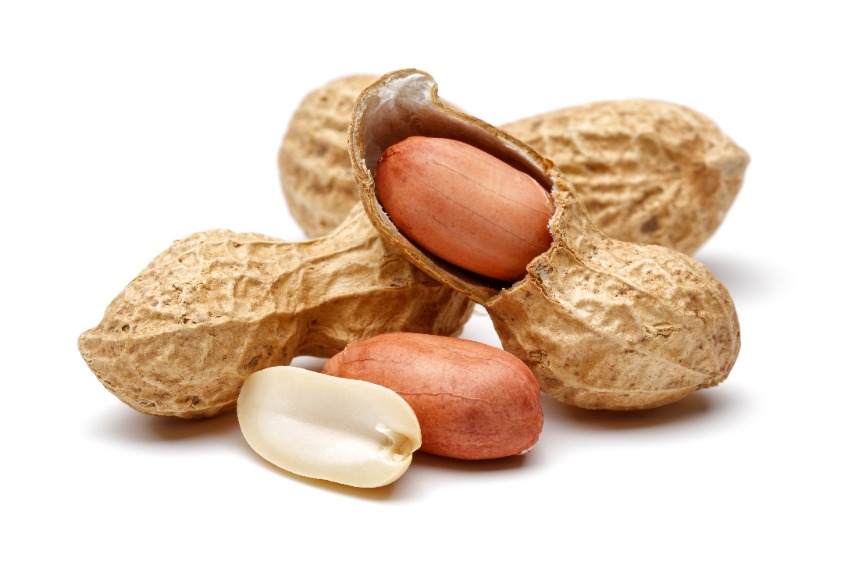Wondering how to improve gut health? The general consensus is that the greater variety of gut bacteria the better.
Researchers recently investigated the effects of peanuts, herbs, and spices— including cinnamon, ginger, cumin, and turmeric—on the gut microbiome in two separate studies.
They found that peanuts, as well as herbs and spices, increased levels of certain gut bacteria after just 4 to 6 weeks of adding them to a typical American diet.
Gut Bacteria
Diet influences the kinds of bacteria that live in the gut. These bacteria are linked to multiple health measures, including glycemic control, which is important for regulating blood sugar levels, immune response, and cardiovascular risk factors.
Studies show that gut bacteria feed off foods that are high in fiber. Research also shows that herbs and spices high in polyphenols— chemicals with antioxidant properties—may influence gut bacteria or gut microbiome composition.
Meanwhile, a systematic review of nut consumption found that almonds, walnuts, hazelnuts, and pistachios increase gut bacteria diversity. Until now, however, no studies have examined the effects of peanuts on the microbiome.
Research on How to Improve Gut Health
Recently, researchers conducted two studies investigating how the consumption of peanuts, herbs, and spices affects the gut microbiome. They found that all three ingredients increased gut bacteria diversity after just 4-6 weeks of consumption. The studies were published in The Journal of Nutrition and Clinical Nutrition.
Adding herbs and spices to improve gut health
Here’s how this study was conducted:
• Researchers recruited 54 adults with an average age of 45.
• All participants had obesity or overweight and had at least one other cardiovascular risk factor, such as elevated glucose or triglycerides.
• The researchers provided 48 participants with the same diet for four weeks alongside one of three doses of spices and herbs: 0.5g per day, 3.3g per day, or 6.6 grams per day.
• The participants ate all three quantities of herbs and spices for four weeks with a two-week ‘washout’ period in between. Spices included cinnamon, ginger, cumin, turmeric, rosemary, oregano, basil, and thyme.
• They provided fecal samples at the start of the study and the end of each diet period.
• The researchers found that consuming 3.3 grams or 6.6 grams of herbs or spices per day increased levels of the Ruminococcaceae bacteria, the most abundant type of bacteria in a healthy intestinal microbiome.
• The highest levels of this bacteria were observed among those who consumed the highest levels of herbs and spices.
This is How the Peanut Study on Gut Health Was Conducted
This is how the peanut study was conducted:
• Researchers recruited 50 adults who had elevated fasting glucose levels and were either overweight or obese.
• They asked the participants to consume either 28 grams of peanuts or crackers and cheese every day as an evening snack.
• All participants tried both diets for six weeks with a four-week washout period in between.
• The researchers collected fecal samples from the participants at the start of the study and at the end of each dietary intervention.
• They found that those who ate peanuts had higher levels of Ruminococcaceae bacteria in their fecal samples than those who ate crackers and cheese.
• They noted further noted that those who ate peanuts also had higher levels of Roseburia bacteria than at the start of the study.
Studies suggest that Roseburia is linked to weight loss and reduced glucose intolerance.
How diet can improve gut health
When asked about the health benefits of Ruminococcaceae, Dr. Lona Sandon, associate professor at the Department of Clinical Nutrition, School of Health Professions at U.T. Southwestern Medical Center, said:
• It appears that Ruminococcaceae increases bacteria that produce butyrate, a short-chain fatty acid that, when produced in higher amounts, may help control appetite, energy balance, and improve blood glucose,” said Dr. Sandon.
• How peanuts and herbs might increase gut microbiome diversity is not yet quite clear.
• In addition to being a source of protein and healthy fats, peanuts are also a source of fiber. Bacteria in the gut feed on fiber.
• With more fiber in the diet, more bacteria and greater variety of bacteria can thrive in the gut.
• As for herbs and spices, the theory is that the polyphenolic compounds, chemical substances found in herbs and spices and also foods like dark cocoa, wine, grapes, berries, and cherries, provide a source of food or help to create an environment in the gut that supports the growth of a greater variety of bacteria.
• Polyphenols [in peanuts, herbs, and spices] are known to promote health in various ways, such as reducing cancer risk or lowering inflammation. It may be that the way in which they work to promote health is through changes in the gut microbiome.
The researchers concluded that adding small quantities of peanuts, herbs, or spices to the diet could increase the abundance of certain gut bacteria.
Click here to read full story about how to improve gut health.






